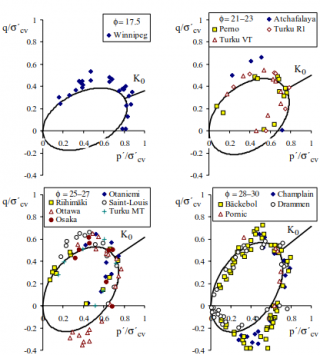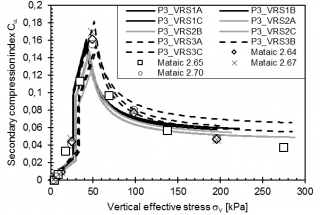Project overview
The study and knowledge of the mechanical behaviour of soils are important cornerstones on which other scientific and applied research in geotechnical engineering is based on. Whether it is a simple analytical calculation or a complex numerical analysis, it is essential to understand how different soil types behave and how they should be modelled. This research area utilises our extensive soil investigation capabilities and enables, for example, the development of calculation methods.
Project background
The mechanical behaviour of soils is very complex. It depends, for example, on soil density, its stress state and stress history, permeability, load direction (properties are often anisotropic), deformation level, and load rate and time. The properties, and the effect of different factors, vary greatly depending on the soil type. Due to this complexity, the material models used to simulate soil behaviour are also quite complex, and often soil-specific. It is important to understand the main contributors that affect the behaviour of different soil materials, and to know the limitations of different material models.
Phases of the project
 The mechanical behaviour of soils has been studied in our laboratory since the 1980s. This has included the study of both static and dynamic strength and deformation properties. Recently, this has been reflected, for example, in the undrained shear strength anisotropy determinations carried out in connection with the FINCONE project. The MASI project, on the other hand, studies the small strain behaviour of soils and the effect of the change in load direction, and the anisotropy of the deformation properties.
The mechanical behaviour of soils has been studied in our laboratory since the 1980s. This has included the study of both static and dynamic strength and deformation properties. Recently, this has been reflected, for example, in the undrained shear strength anisotropy determinations carried out in connection with the FINCONE project. The MASI project, on the other hand, studies the small strain behaviour of soils and the effect of the change in load direction, and the anisotropy of the deformation properties.

